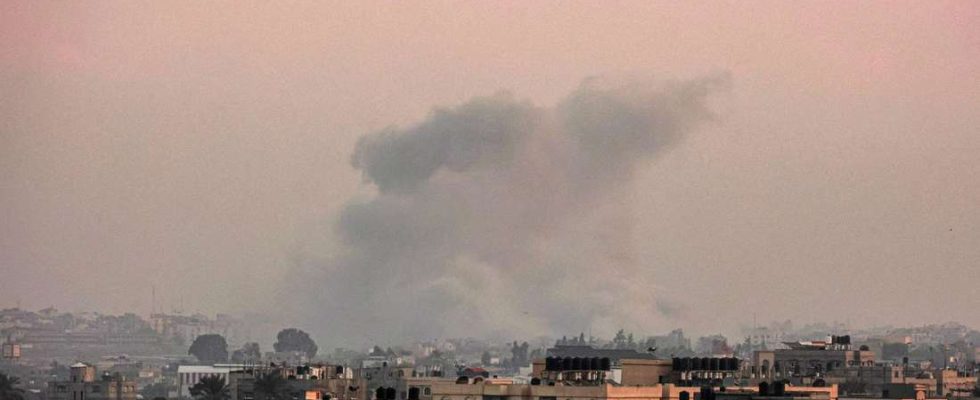The deaths of 21 soldiers in Gaza could jeopardize a hostage rescue agreement and a ceasefire. The government is under pressure as fighting continues.
Tel Aviv – The names of the fallen are a cross-section of Israeli society: a Bedouin from the desert town of Rahat, a settler from the West Bank, an immigrant born in the Philippines and 18 other names were gradually “released for publication” on Tuesday it says in dry army jargon. In a single incident on Monday, 21 Israeli army reservists died in the Gaza Strip. In the hours that followed, the army’s psychologists were busy contacting the families of the fallen.
Earlier, the army announced the deaths of three soldiers from the paratrooper brigade who were killed by an anti-tank missile during fighting in the city of Khan Yunis on Monday, and one was seriously wounded. This brings the number of soldiers killed on Monday to 24. It is the highest number of soldiers killed in one day since the ground offensive in the Gaza Strip began.
According to initial reports, the 21 Israelis killed died just half a kilometer from the border with Israel. During the preparation for a targeted explosion of the building, an anti-tank grenade detonated by terrorists detonated the explosives prematurely.
Hostage deal in danger? Negotiations could be torpedoed
Israel was in national mourning on Tuesday. Before all the names were published and all the news sites showed the photos of the fallen, the sad war routine began: calls to friends and relatives whose sons were in the war: Was everything okay? The whole country is mourning. And parts of the government are using the mourning for their own purposes. Prime Minister Benjamin Netanyahu called on the army to “learn the necessary lessons” from the incident. It is one of many attempts by the embattled head of government to redirect the criticism that has been hitting him since October 7th at the latest to the military leadership.
The incident could also jeopardize an upcoming hostage deal. As investigative journalist Barak Ravid reported, citing high-ranking Israeli sources, there had previously been significant progress in negotiations with Hamas. Israel is said to have agreed to enter into a two-month ceasefire with a partial withdrawal of troops if all civilian hostages were handed over to Israel. There are said to be 136 people, with the aim of freeing the remaining minors, children, the elderly and the seriously ill first.
How many Palestinian prisoners could be released from Israeli prisons in return is unclear. The deal could fail because of this question. In Israel, the relatives of the hostages have increased their pressure on the government in recent days and set up a protest camp in front of Netanyahu’s residence in Jerusalem. Defense Minister Joaw Gallant confirmed in a conversation with relatives on Sunday that they were closer to a deal than before.
The losses now see confirmation of those who warn against a ceasefire: it could help the terrorist groups in Gaza to reorganize themselves. As expected, the right-wing extremist security minister Itamar Ben Gvir also called for an unconditional continuation of the fighting.
Aid organizations are drawing attention to the catastrophic situation in the Gaza Strip
Reports from the town of Khan Yunis in the southern part of the Gaza Strip show that there can be no talk of any reduction in the intensity of the fighting. The Israeli army reported that “500 terrorists were killed” on Monday alone. Humanitarian aid workers in Gaza, on the other hand, report heavy fighting near a hospital. According to the UN, dozens of people were killed and many more injured in strikes near the Al-Amal hospital in Khan Yunis, which serves as a refuge for several thousand people from air strikes.
The Red Crescent rescue organization reported that Israeli troops had surrounded its headquarters in Khan Yunis, preventing ambulances from being able to get out to treat the many wounded.
Even where there is no shooting, aid organizations fear an increasing number of victims as a result of the catastrophic humanitarian situation. Around 380,000 people suffer from extreme hunger. In the Rafah area near the border with Egypt, Palestinians live tightly packed in self-made housing, often without access to hygiene or clean water. Epidemics are spreading; according to the WHO, more than half of children under the age of five suffer from diarrhea.
Aid organizations have been pointing out for weeks that without a ceasefire lasting several weeks, the condition of the civilian population in Gaza would continue to deteriorate massively. (Maria Sterkl)

